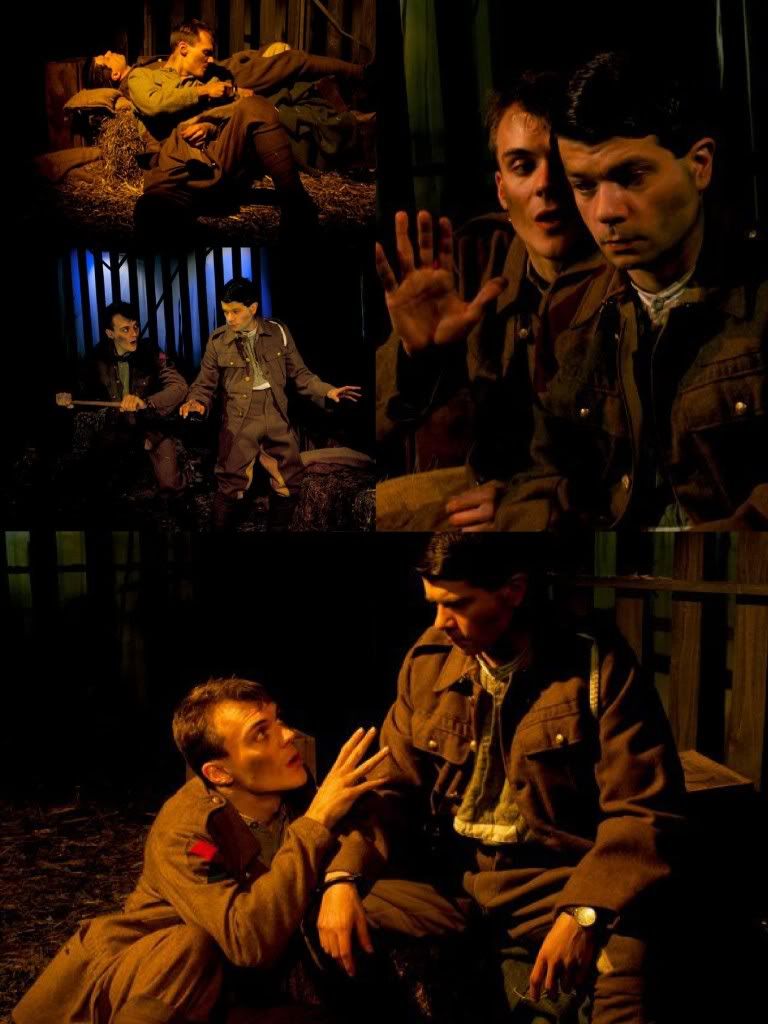My second foray into a pub theatre, the White Bear Pub Theatre this time, for the weekend and one that even more convinced me that it’s not exactly a happy alliance of two institutions. I’d headed down early, in the hope of trying out new ale and expecting a typical quite Sunday drowsiness and found that I’d completely forgotten the football was on. No quiet Sunday for me then and no ale either as I couldn’t manage to fight my way to the bar. Plus I was getting an all to familiar look from the regulars, suggesting that they’d twigged I wasn’t their for the footie (though it wasn’t a bad game, just don’t ask me who was playing) and that they were about as happy to see me as I was to see them. All in all not an auspicious start and unfortunately this time my reservations proved to be well founded as although the football finished before the show began, the crowd almost immediately afterwards launched into a disco, which half the time threatened to drown out the actors.
This was a particular shame as it meant both actors, Nick Danan and Christopher Birks, had to fight not only to be heard but also to maintain the delicate emotional states they were conjuring. It was incredibly impressive that they managed to achieve it, let alone give the excellent performances they did and I certainly didn’t resent Nick Danan launching a flying ‘v’ in the pubs direction during the curtain call (actually I greeted the sight with a certain amount of vindictive joy).
The play itself is a delicate exploration of the relationship of two soldiers chained together for two days waiting for one’s trial for cowardice whilst the battle of Paschendale rages around them. The real strength in it lies in the way that the twists and turns of their relationship is charted out, through the false masks, the fake friendships, the denials, the deceptions, the attacks, the revelations and the eventual compassion and understanding. The characterisation in both the writing and performances were excellent – nuanced and delicately handled. Watching the characters unravel was an incredibly moving experience and I suspect I would have been in floods of tears if it hadn’t been for the outside music creating a rather insurmountable barrier for me.
As serious as all that sounds, it also managed to be very funny – particularly through the regular use of song and dance routines and an excellent drunk sequence half way through. Plus both characters, Mo and Willie, though troubled were also extremely likable. This meant that although you were moved, you never felt truly battered by it. Perhaps in another situation that would be appropriate, given the subject matter, but I always love productions that manage to marry both comedy and tragedy and this handled it well.
It was also definitely another win for the small cramped surroundings of these stolen studio spaces, transformed here into a rough shed and giving us a cramped, claustrophobic and very personal experience – that suited the play extremely well. Though I wished they’d had a budget that could have stretched to having the light spilling through the created slats surrounding the audience and creating a more immersive environment. And the physical restriction of the actors being chained together for much of the piece, gave the play a very interesting physicality
All in all – I thought this was an excellent way to approach a WWI tale – managing to be very personal but also to give us glimpses of some of the most heartbreaking aspects of our own policies during the time. Such as the executions on the grounds of cowardice and the practice of putting soldiers from the same places in the same regiments, so whole villages could see their young men wiped out in one horrendous swoop. I also felt it was sad, but very true to life, that we didn’t get to learn what happened to Mo at the end. It felt right to me.
This was another excellent fringe production, it’s just a shame that the pub theatre setting did it so much wrong.

No comments:
Post a Comment